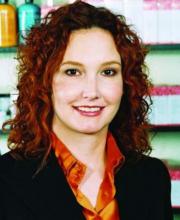The Internet has changed many facets of modern life, and the practice of medicine has not gone untouched. Consider, for better or worse, the reliance of many patients on WebMD and various other sites for self-diagnosis before consulting with a physician. Even before the Internet, patients would self-diagnose their skin type (more than 80% of them get it wrong). The Internet allows them access to most cosmeceutical brands, the misuse of which leads to unintended consequences that can affect skin health. Clearly, patients who receive advice from a trained medical professional have better outcomes. One reason for this is that the doctor (or aesthetician) spends time with the patient, explaining what products to use and in which order to use them, and follows up with the patient to assess the outcome and adjust the regimen as needed. The problem arises when these patients decide to purchase the products from a source other than their treating physician. Only about 30% of patients buy refills from their doctor for second purchases, and just 15% purchase products from their doctor the third time around. Why is this? It is likely the convenience and the low cost that drive patients to purchase from sources other than their physician or aesthetician. This desire to save money carries significant risks. Many the products online are expired or counterfeit, or are old containers refilled with a different formulation. Patients should be cautioned to only buy products from a source they trust.
I have had dozens of patients bringing in counterfeit products in the last few months. It seems that the problem is becoming more common. I interviewed several companies about this to see whether others were experiencing the same trend. This is what I found:
Some companies report that they have seen their samples and trade size containers being sold on eBay. Joe Ragosta of Topix Pharmaceuticals reports that when his company has asked such sellers if they are obtaining these products – marked as samples – from the company, they hear a range of defensive responses, including: “I got it at a show” or “My doctor gave me samples, and I decided to sell them” and “I work at a doctor’s office, and they let me take products as needed.” Make sure that no one on your staff is taking samples and selling them online.
One example: NeoStrata is concerned about the fraudulent use of their products. They recommend that patients purchase their products only from a known physician, ideally from the physician’s office rather than the website. The company understands that customers may want to save money wherever they can and might prefer to buy products online. NeoStrata urges customers who opt to buy online to make such purchases through physician-affiliated websites, where the doctor is clearly identified. At the very least, the company urges patients to choose only sites where they can contact someone and obtain the name of a physician. Further, they strongly discourage using eBay or other auction sites, which do not vouch for the safety and authenticity of products sold through their services.
Other potential problems with skin care products sold online include the following.
Counterfeit products
Several reports have indicated that counterfeit skin products originating in other countries have made their way into the United States and, according to the article published on the website Fact Based Skin Care, pharmaceuticals and personal care products, including cosmetics, are among the top five types of products seized by U.S. Customs and Border Patrol agents (Coy, C. Dangers of Counterfeit Cosmetics, Aug. 4, 2014). Such products include old bottles refilled with inexpensive imitation creams or bottles made to look like legitimate products that in fact contain imitation creams. I once had a patient present with an adverse reaction to a retinol product, which she brought with her to the visit. I sent the bottle to the company, which confirmed my suspicion that the product was counterfeit – a different bottle with a similar label.
In February 2014, CBS New York ran a segment on the potential inclusion of carcinogenic and other harmful ingredients found in online personal care products touted for their low prices (CBS New York. Counterfeit Cosmetics May Be Harmful To Your Health. Feb. 27, 2014). Not even 2 weeks later, CNN reported on the arrest of two brothers in New York alleged to have masterminded a multimillion-dollar counterfeit health and beauty product ring (CNN. Zulueta A. Massive Fake Health and Beauty Supplies Ring Busted. March 9, 2014). ABC’s Good Morning America followed suit with a segment in April 2014 that exposed aspects of the use of knock-off cosmetic products (ABC News, Good Morning America. Online Beauty Bargains: Is It the Real Deal? April 3, 2014).


